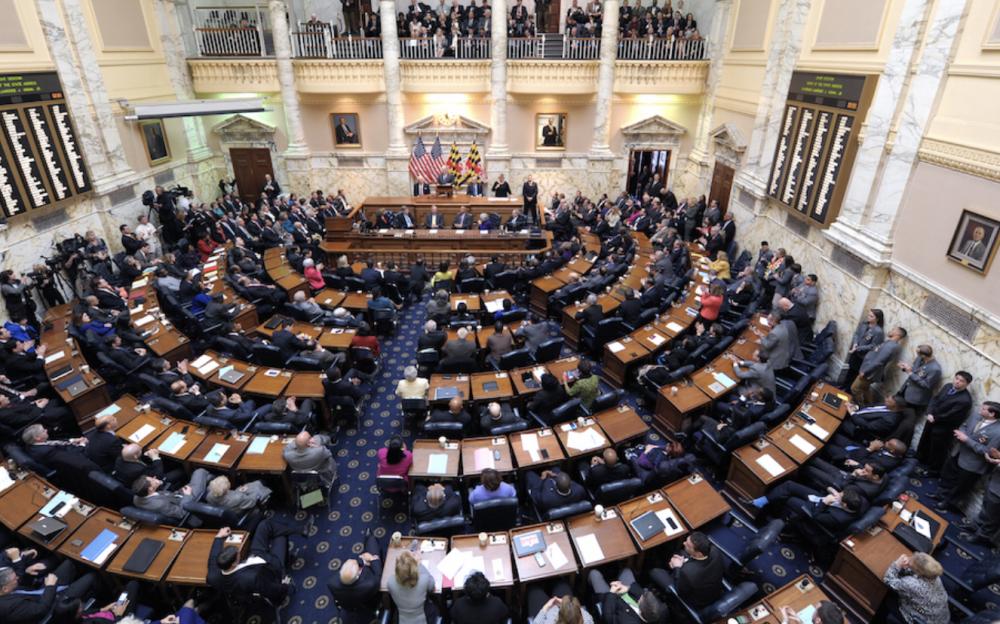Maryland’s 2019 General Assembly session ended last night at midnight. It was an eventful one, including the overrides of four vetoes by Gov. Larry Hogan.
Throw in the mix the ethics upheaval at the University of Maryland Medical System’s (UMMS) board of directors, and a racist remark by a Harford County delegate, and it’s easy to characterize the 90-day legislature as one pulsating with political action and lapse in human judgment.
Three of the veto overrides have particular importance to the Eastern Shore. At the constant risk of being redundant, I state again the need for Shore residents to pay attention to the work of their state senators and delegates. The impact becomes quickly noticeable.
As I wrote in January in anticipation of the session, lifting the minimum wage to $15/hour, in phases, by 2025 (2026 for companies with fewer than 15 employees) was a major, much debated issue. Proponents won the day. They argued that a higher minimum wage—now $10.10 an hour—was necessary to provide a livable salary to those on the edge of poverty. Opponents predicted potential job cuts by small businesses and possible movement of businesses to adjoining states with a lower minimum wage.
I had argued for caution and open-minded stance by proponents toward arguments made by business interests. I suspect I was whistling in the wind.
The second veto override concerned a decision made a few years ago by Gov. Hogan to move back the beginning of the school to after Labor Day to enhance Ocean City tourism dollars. Local school systems vigorously objected, compelled to adjust the school year to ensure the mandate for 180 school days. The majority of legislators agreed with local boards and returned the power of controlling the school year to Maryland’s 23 counties and the City of Baltimore.
I agree that local school boards should retain the authority to determine when schools should open and close.
The third override happened yesterday when the State Senate joined the House of Delegates in supporting legislation establishing five oyster sanctuaries, including two in Talbot County, Harris Creek and Tred Avon River, and one in Dorchester County, the Little Choptank River. Gov. Hogan listened to local watermen who rightfully want to protect their livelihoods but wrongfully oppose science-based methods to protect the oyster harvest. The oyster population has dropped precipitously during recent decades.
I believe that the sanctuaries must be protected. Not only do oysters satisfy the palate, but they also, nearly as importantly, serve as filters in deterring pollution of the Chesapeake Bay and its tributaries.
Nine members of the UMMS board were found in mid-March to have received hospital contracts, some sole source, that wreaked of unethical self-dealing. Consequently, the legislature quickly approved a bill to require all board members to resign in phases and then re-apply and to mandate an audit of the UMMS contract process. Shore Medical Center is part of the UMMS system.
I applaud the legislature for moving quickly to address an unconscionable abuse of fiscal responsibility by several board members.
Finally, Del. Mary Ann Lisanti used an infamously shameful derogatory term to describe an African-American community in Maryland. Consequently, she lost most of her legislative assignments.
Some may be pleased whenever a legislative session ends. I for one believe that the Maryland General Assembly is an effective political body able to take action that doesn’t stall in partisan gridlock, as is the case in our disabled, dysfunctional Congress.
Citizen-legislators who return to their private and professional lives after 90 days of bill-making are effective representatives of the public body.
Columnist Howard Freedlander retired in 2011 as Deputy State Treasurer of the State of Maryland. Previously, he was the executive officer of the Maryland National Guard. He also served as community editor for Chesapeake Publishing, lastly at the Queen Anne’s Record-Observer. In retirement, Howard serves on the boards of several non-profits on the Eastern Shore, Annapolis and Philadelphia.



Gren Whitman says
Regarding the General Assembly’s decision to raise Maryland’s minimum wage, Del. Jay Jacobs (R-36) wrote to me: “We all want people to make more money, allowing them to provide for their families and achieve their goals. However…” and then listed several reasons why he voted against increasing the minimum wage in Maryland.
I wrote back to Mr. Jacobs: “Most wage workers do not receive the full value of their labor, and their employers pocket the difference. Respectfully, no matter how you spin it, a vote against a wage increase is a vote against a wage increase—just that, and nothing more.”
COMMENT: Mr. Jacobs and his GOP colleagues are supposed to represent everyone, not just the Chamber of Commerce.